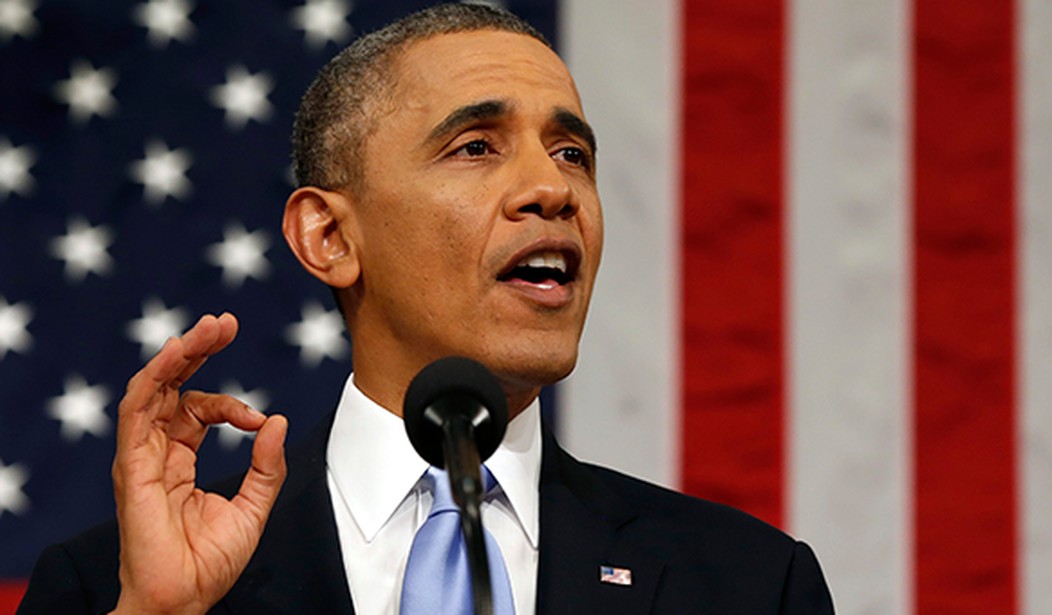"We came. We saw. He died."
So said then-Secretary of State Hillary Clinton when she learned that Libyan rebels had killed Libyan leader Muammar Gadhafi.
Gadhafi and his regime were brought down by an insurrection that then-President Barack Obama backed with U.S. military action -- even though he did not have the constitutionally required congressional authorization to do so.
Speaking from Brazil in March 2011, Obama told the American people he had ordered the U.S. military to intervene in Libya to enforce a U.N. Security Council resolution.
"So we must be clear: Actions have consequences, and the writ of the international community must be enforced," Obama said then. "That is the cause of this coalition."
He was right that actions have consequences.
So, what have been the consequences since Obama -- enthusiastically backed by Secretary of State Clinton -- helped overthrow the Gadhafi regime in Libya?
Has a democracy emerged there?
Is liberty flourishing in Tripoli and Benghazi?
Have terrorists been expelled from the country?
Is the region more stable and secure?
Are we more certain now than we were then that terrorists who spring from -- or find sanctuary in -- Libya will not come to the United States and try to kill Americans?
Will history record that Obama and Clinton were keen strategic thinkers when it came to advancing the interests of the United States in North Africa?
Recommended
Hardly.
Yet history should recall the Obama-Clinton policy toward Libya as one of the defining elements of Obama's administration.
Eighteen months after Obama announced that the U.S. was intervening in Libya's civil war to enforce "the writ of the international community," radical Islamic terrorists attacked the poorly secured State Department compound in Benghazi and the CIA "annex" there.
They killed four Americans including Ambassador Chris Stevens, Sean Smith, Glen Doherty and Tyrone Woods.
In the more than seven years that have passed since that attack, Libya has remained in chaos.
A civil war continues there, and terrorists operate on Libyan territory.
The State Department's latest annual report on terrorism in Libya, which was released this month and covers calendar year 2018, makes this clear.
"Terrorist groups continued to exploit the country's political instability and limited government presence, and some groups have integrated themselves within local communities -- particularly in the South," said the report.
"ISIL-Libya and al-Qa'ida-aligned terrorists carried out dozens of attacks throughout 2018," the report said. "Methods included suicide bombings, VBIEDs, ambushes, kidnappings, and targeted assassinations."
"National police and security forces are fragmented, are inadequately trained and equipped, and lack clear reporting chains and coordination mechanisms," it said. "Libya's military forces are similarly weak and fragmented. Non-state armed groups often overmatch formal security structures."
For much of the past year, Khalifa Hifter and his forces have laid siege to the Libyan capital of Tripoli and the largely impotent UN-backed government that resides there. Hifter is a 75-year-old Libyan military officer who fled to the United States during Gadhafi's reign and became a U.S. citizen. He returned to Libya during the rebellion and led forces that eventually took control over the eastern Mediterranean coast of Libya -- including Benghazi.
"Mr. Hifter vowed to rid Libya of Islamists of all kinds, and he quickly attracted support from Egypt, the United Arab Emirates and Saudi Arabia," The New York Times reported in April. "All three had aligned themselves in a regionwide campaign to crush the Muslim Brotherhood-style political movements that had appeared poised to ride Arab Spring elections to power."
So, which international power is aligning itself with this would-be Libyan leader today?
Vladimir Putin's Russia.
"The Russians have intervened on behalf of the militia leader Khalifa Hifter, who is based in eastern Libya and is also backed by the United Arab Emirates, Egypt, Saudi Arabia and, at times, France," The New York Times reported on Nov. 5.
The Times reported that "Russian mercenaries, including skilled snipers" are now engaged in the battle for Tripoli.
"The snipers are among about 200 Russian fighters who have arrived in Libya in the last six weeks, part of a broad campaign by the Kremlin to reassert its influence across the Middle East and Africa," said The Times.
"We came. We saw. He died," said Hillary Clinton.
And President Obama and his secretary of state helped put Libya on a path to become a terrorist haven and then become, perhaps, a renewed friend of Russia on the Mediterranean coast.
Terence P. Jeffrey is the editor in chief of CNSnews.com.
























Join the conversation as a VIP Member